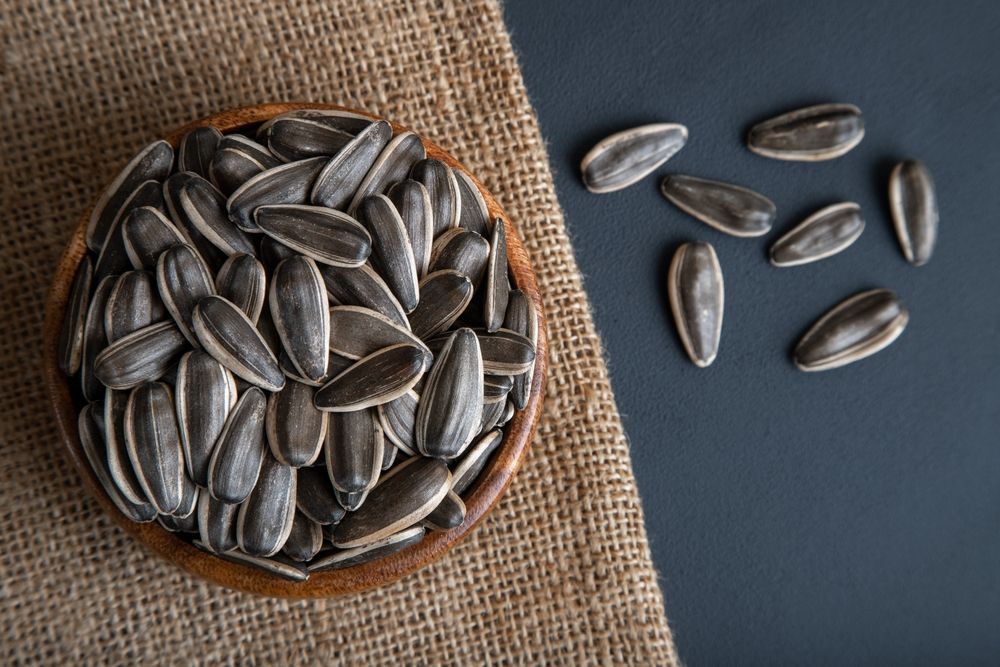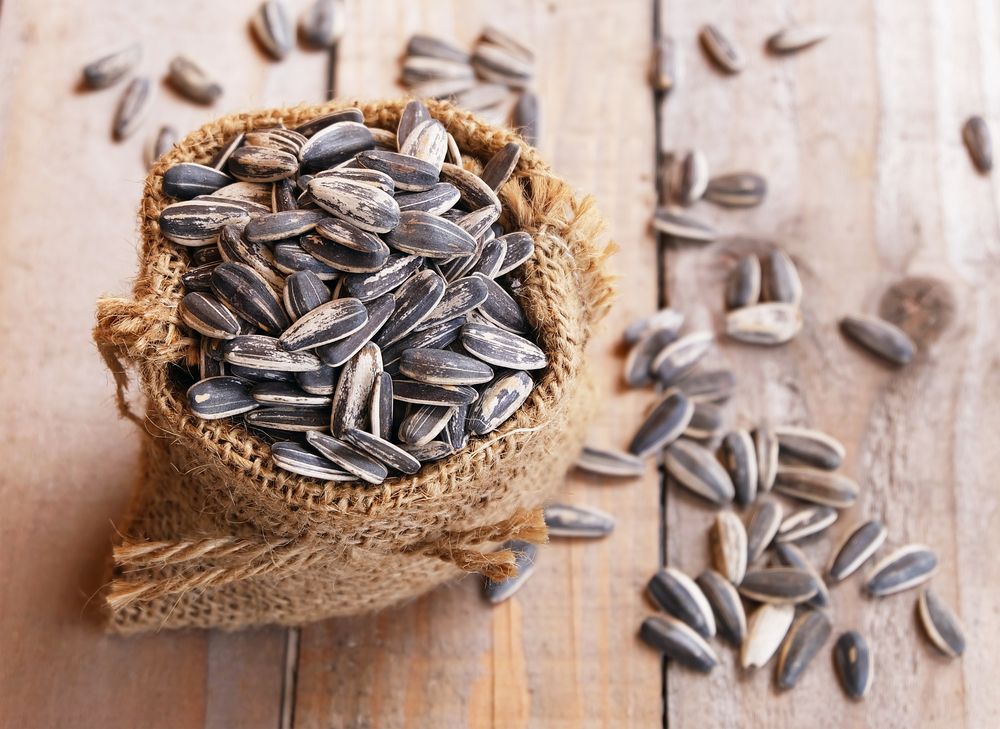
Whether you enjoy them shelled or unshelled, roasted or raw, sunflower seeds are a popular and versatile snack loved by millions of Americans each year. These tiny seeds add a satisfying crunch to trail mixes, salads, and baked goods, and they’re a staple at ballparks across the country.
More than just a tasty treat, sunflower seeds are packed with nutrients that support heart health, enhance immune function, and provide a rich source of antioxidants, making them a valuable addition to any diet.
To uncover the benefits and potential drawbacks of sunflower seeds, we consulted with registered dietitians who shared insights into these often overlooked seeds. Their expertise will help you make an informed choice to enhance your overall health.
Sunflower Seeds Nutrition Facts
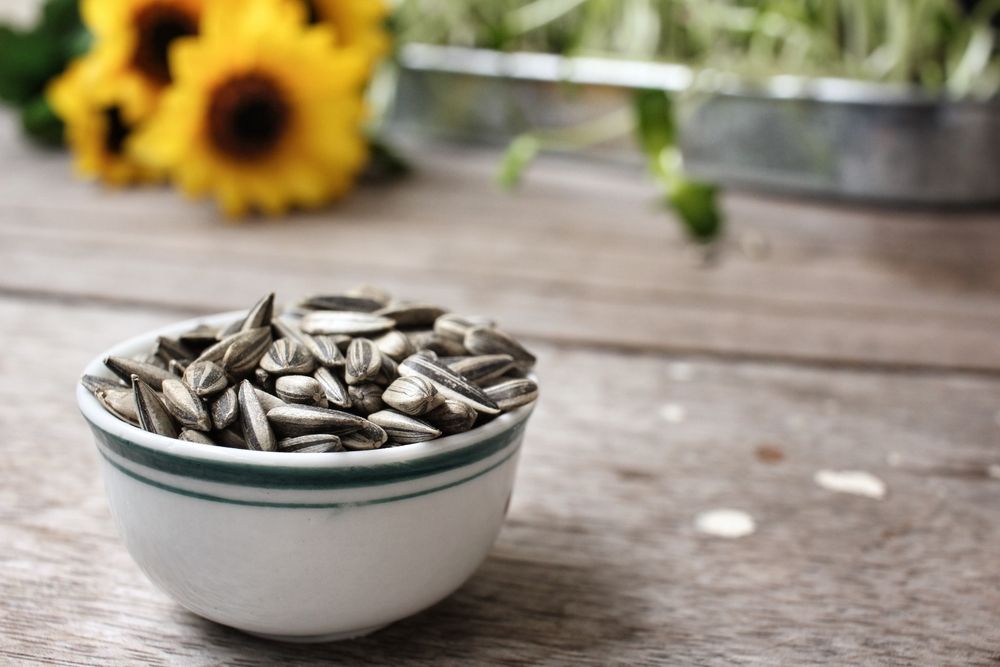
Nutrition (per 1/4 cup serving or 35 grams):
Calories: 205
Fat: 18 g (Saturated fat: 2 g)
Sodium: 3 mg
Carbs: 7 g (Fiber: 3 g, Sugar: 1 g)
Protein: 7 g
Sunflower Seeds Benefits
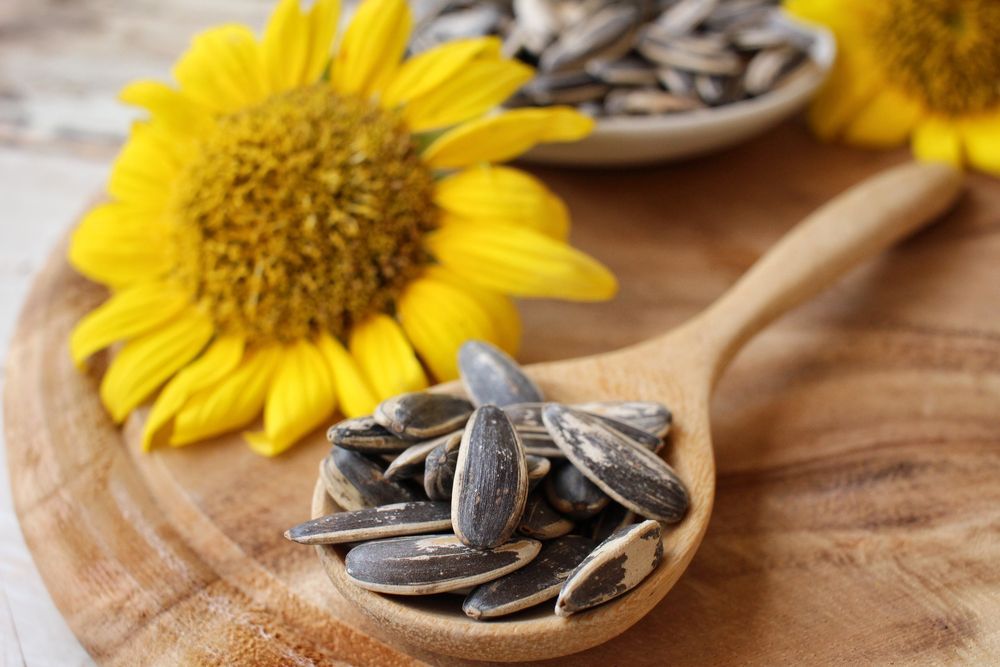
They're a Great Source of Plant Protein
"Like other nuts and seeds, sunflower seeds provide a solid dose of protein," says Destini Moody, RDN, CSSD, LD, a registered dietitian and sports dietitian with Garage Gym Reviews. Research indicates that plant-based protein can support heart health, assist with weight management, and lower the risk of chronic diseases. "Just one ounce of sunflower seed kernels offers 7 grams of plant-based protein," Moody explains. "This makes them an excellent choice for vegans and vegetarians to meet their protein requirements. Additionally, the combination of protein and healthy fats in sunflower seeds makes them a filling and satisfying snack."
They Can Promote Healthy Skin
Sunflower seeds are more than just a tasty snack; they can also benefit your skin. "The vitamin E in sunflower seeds helps protect the skin from damage caused by UV rays and environmental pollutants," explains Gianna Masi, CPT, RDN, a certified personal trainer and registered dietitian with Barbend. "Additionally, the essential fatty acids in sunflower seeds help keep the skin hydrated and contribute to a healthier glow."
They Can Help Control Portion Sizes
Sunflower seeds can assist in managing portion sizes and reducing calorie intake. "Seeds are naturally high in fat, making them calorie-dense," says Destini Moody, RDN, CSSD, LD. "However, opting for shelled sunflower seeds can slow down the eating process as you peel and unshell them, which can aid in portion control."
They're High in Fiber
"One cup of sunflower seeds contains 12 grams of fiber, which is a significant portion of your daily fiber needs," says Masi. "This is beneficial because fiber helps us feel fuller for longer and can positively impact cholesterol levels and heart health." According to the National Institutes of Health, the fiber in sunflower seeds also supports digestion by preventing constipation and promoting regular bowel movements.
They Can Contribute to Healthy Weight Gain
"Sunflower seeds are rich in polyunsaturated fats, which are beneficial for heart health," Moody explains. "Due to their high-fat content, one ounce of sunflower seed kernels contains about 204 calories. Depending on the individual, you can easily consume this amount in just one handful."
They're Rich in Magnesium
"Magnesium is a crucial mineral for various bodily functions, including nerve regulation, muscle relaxation, and mood stabilization," says Masi. "It's also important for bone health. With 455 milligrams of magnesium per cup, sunflower seeds can help you meet your daily magnesium needs."
They're a Great Source of Vitamin E
Vitamin E is essential for maintaining overall health. "As a powerful antioxidant, vitamin E combats inflammation and protects the body's cells from oxidative stress," Moody explains. "It may also help reduce the risk of heart disease. Just one ounce of sunflower seeds provides 38 percent of your daily vitamin E requirement."
They Can Strengthen Your Immune System
"Sunflower seeds are also a good source of selenium, a nutrient vital for immune health," Masi notes. "When combined with a healthy diet and proper sleep, selenium can help boost your immune system."
Potential Downsides of Eating Sunflower Seeds
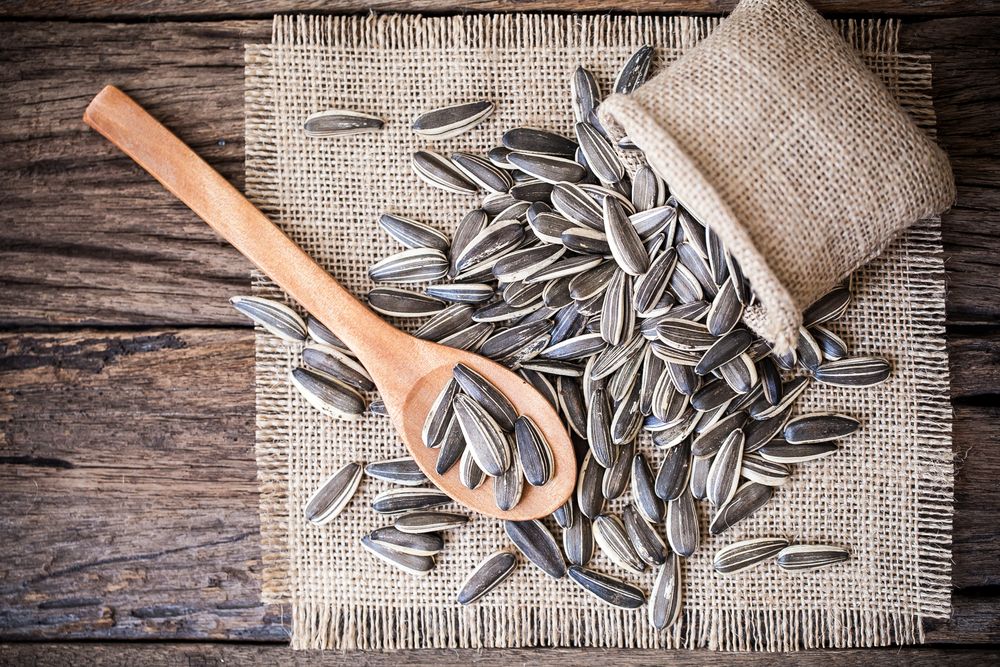
They're Calorie-Dense
"Sunflower seeds are a convenient and portable snack, but their caloric density means that even a small portion packs a significant number of calories, which can easily lead to an unintentional surplus," warns Destini Moody, RDN, CSSD, LD. "Consuming too many can result in unintended weight gain over time."
They Contain High Levels of Omega-6 Fatty Acids
Maintaining a balance between omega-6 and omega-3 fatty acids is essential for overall health, but sunflower seeds are particularly high in omega-6s. "While omega-6s are necessary, an excessive intake compared to omega-3s can disrupt this balance," says Gianna Masi, CPT, RDN. "This imbalance may contribute to inflammation and increase the risk of chronic diseases. To maintain a healthy balance, make sure you're also consuming fats rich in omega-3s, like those found in salmon, flax seeds, chia seeds, or walnuts."
They Can Be High in Sodium
If you enjoy salted sunflower seeds, it's important to keep an eye on your sodium intake. "Many commercially available sunflower seeds are salted, which can lead to excessive sodium consumption if you're not careful," Moody points out.
"While sodium is necessary in your diet, too much over time can have negative side effects. Aim to keep your daily sodium intake around 2,300 milligrams, as recommended by the USDA. High sodium levels can elevate blood pressure and increase the risk of cardiovascular disease. If sodium is a concern, consider choosing lightly salted or unsalted sunflower seeds," she advises.
Are Sunflower Seeds Healthy?
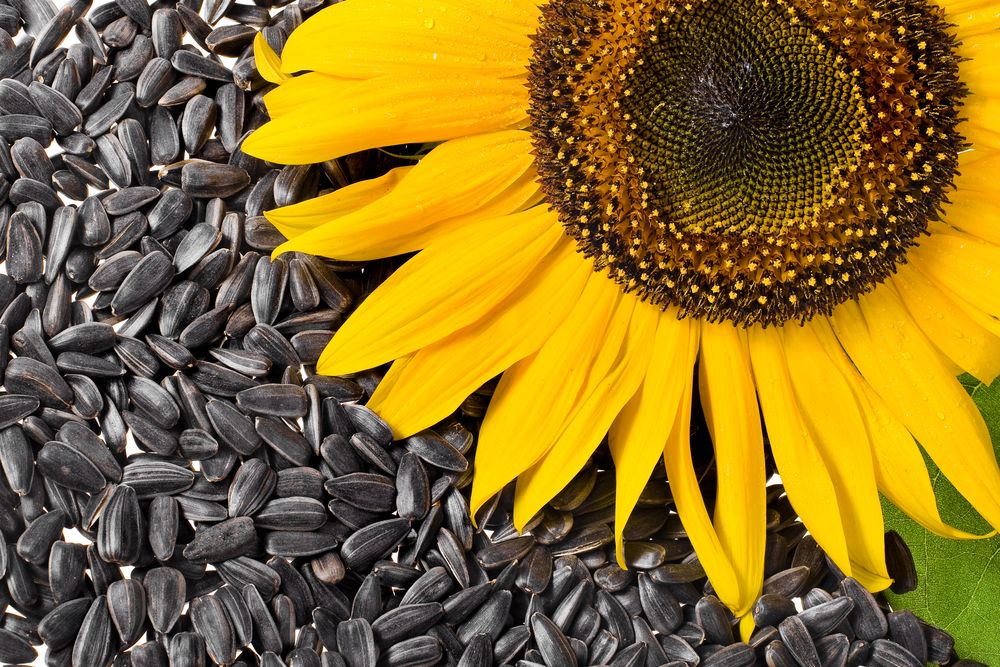
Sunflower seeds are loaded with nutrients and offer a range of health benefits. They are an excellent source of plant-based protein, fiber, and healthy fats, which support heart health, enhance skin quality, and strengthen the immune system. Additionally, sunflower seeds provide essential nutrients like magnesium, vitamin E, and selenium. While they are calorie-dense, high in omega-6 fatty acids, and can be high in sodium if pre-seasoned, their benefits generally outweigh the drawbacks for most people. With mindful consumption, sunflower seeds can be a valuable and healthy addition to your diet.

